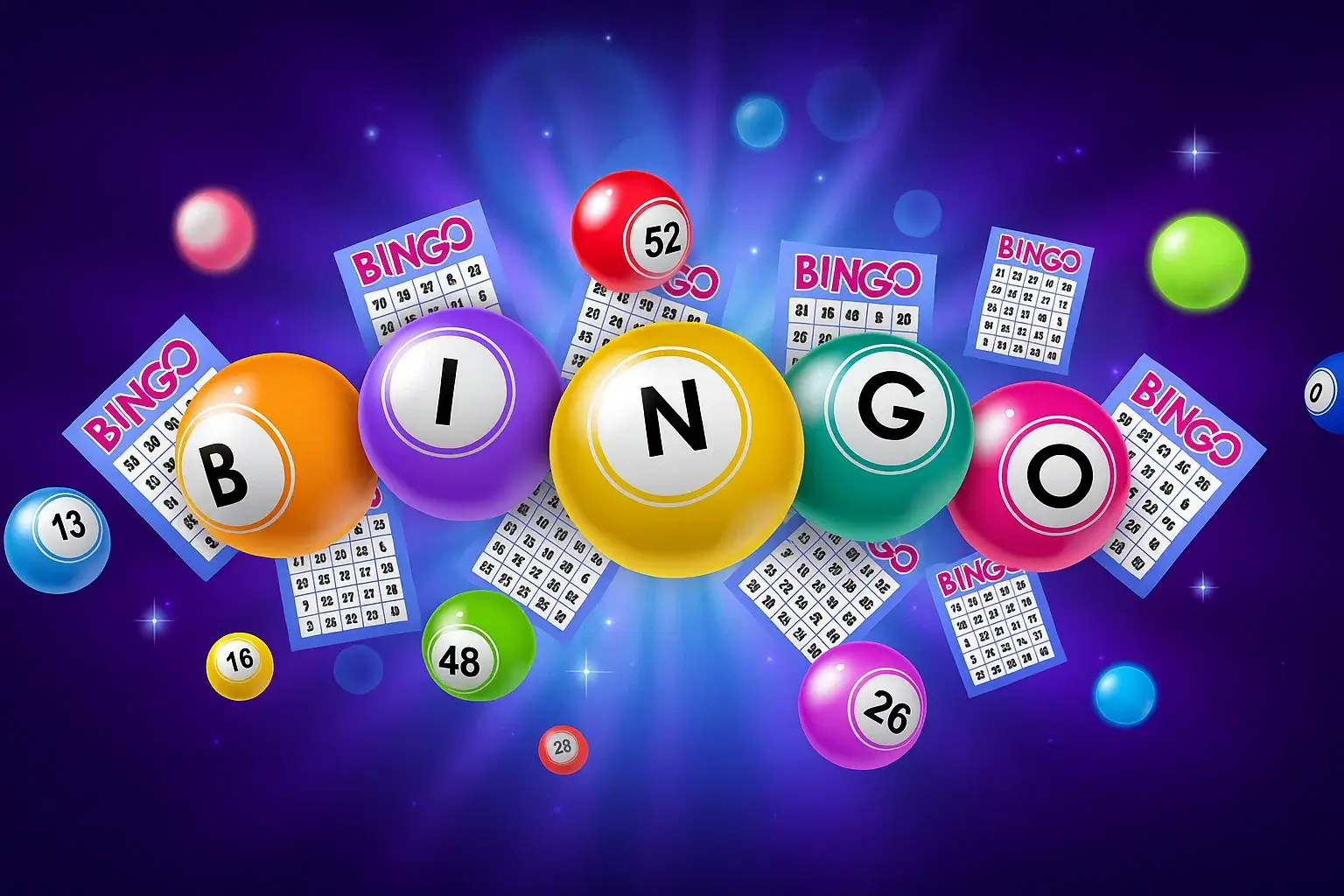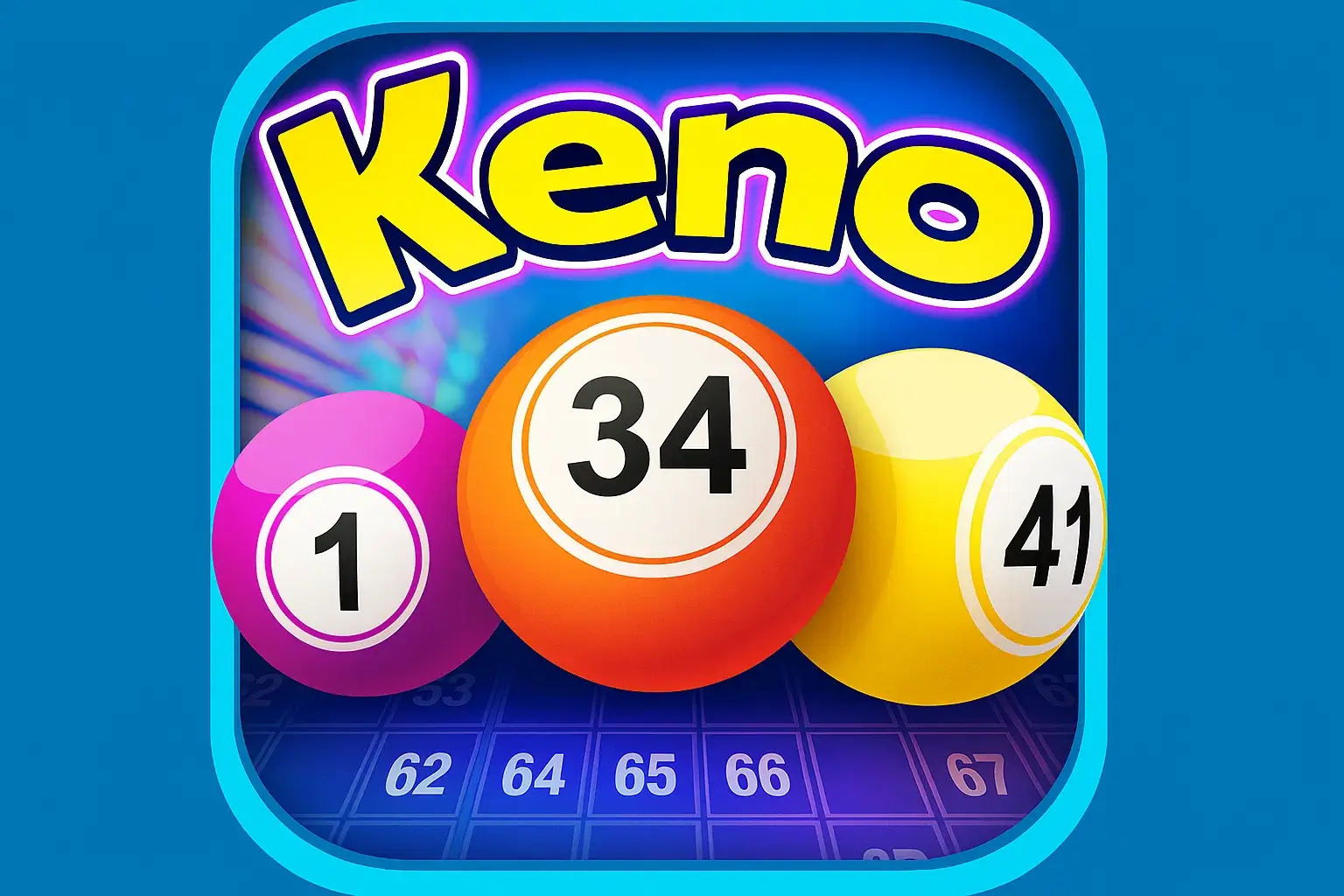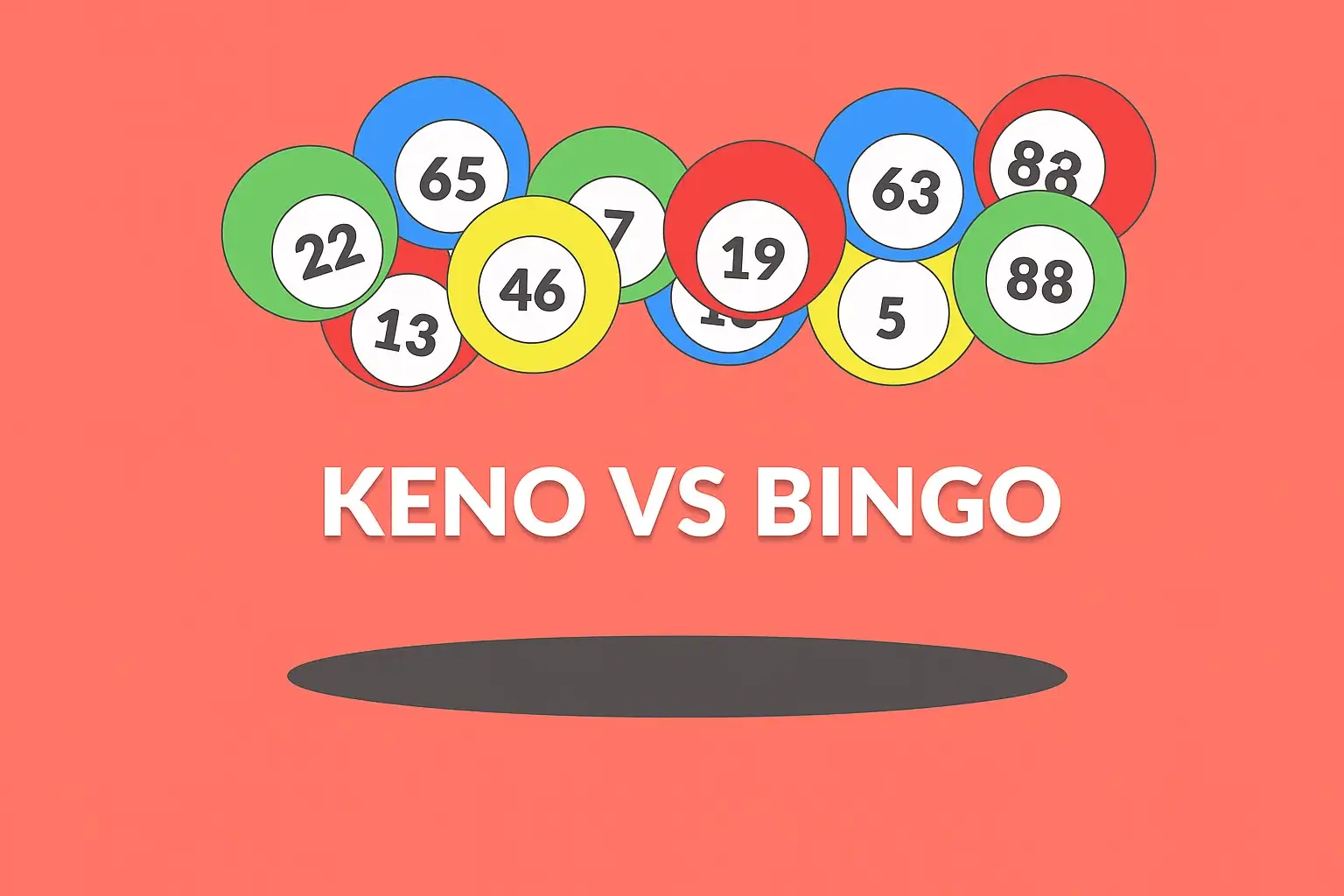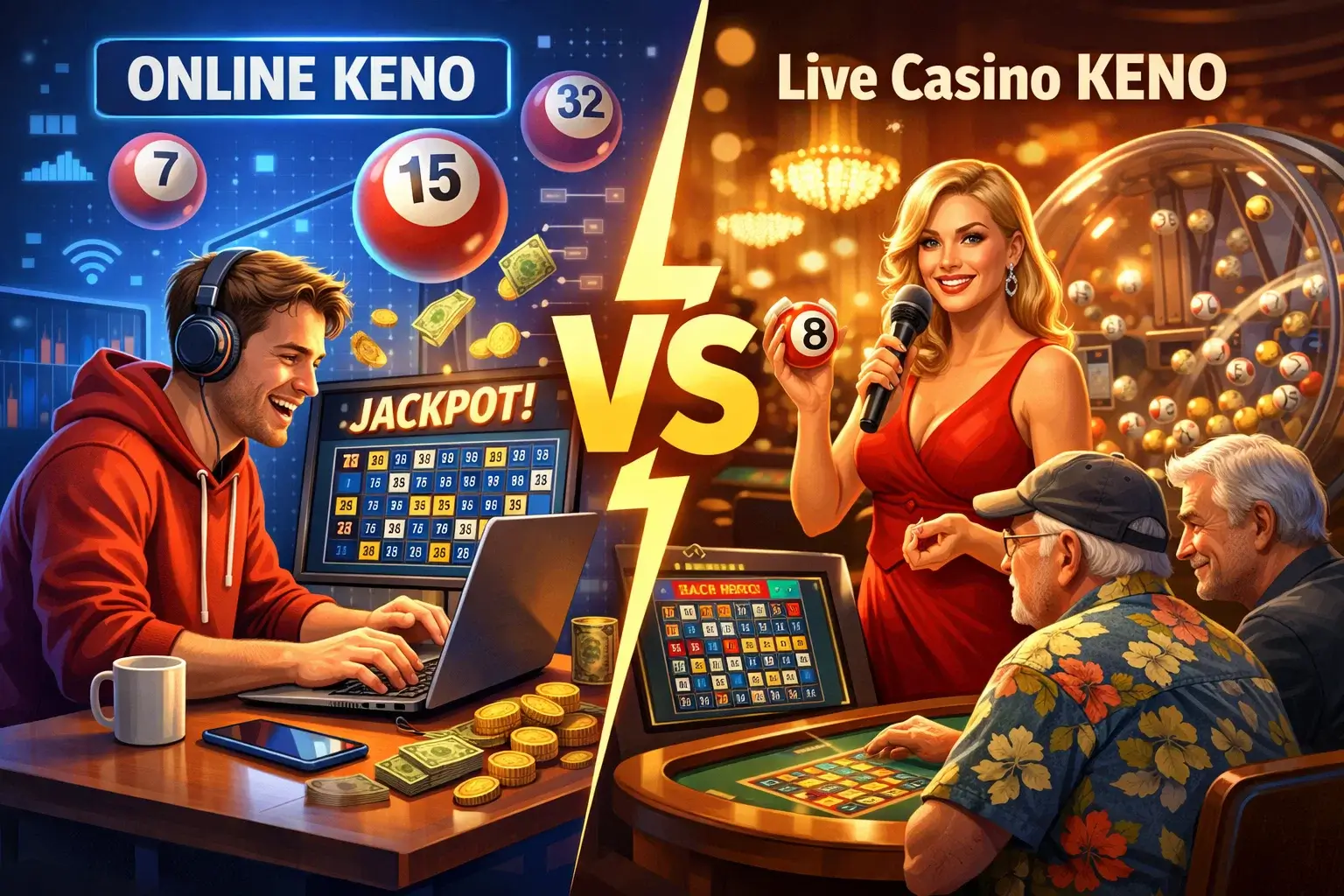Why Digital Bingo Has Transformed a Classic Game Into a Modern Gaming Revolution
I still remember the first time I walked into a traditional bingo hall in Manchester. It was 2004. The room was filled with retired people, mostly women, marking cards with daubers, chatting with neighbors, drinking tea. Someone won bingo. Everyone clapped. It was charming, warm, genuinely community-oriented. I walked out thinking, “This is timeless. Nothing will ever replace this.”
I was wrong.
Nine years later, I played online bingo for the first time. It was supposed to be a professional obligation – I needed to understand the digital version for my analysis. Instead, I found myself immediately understanding why millions of people were choosing online bingo over traditional halls. I played for an hour and realized the landscape had shifted.
That was nearly fifteen years ago. Since then, I’ve dedicated significant research to analyzing how online bingo differs from traditional bingo, and I want to tell you this plainly: online bingo hasn’t replaced traditional bingo so much as it’s created a completely parallel universe. And for many players, it’s actually superior.
The Liberation: Playing Whenever You Want
Let me start with the most transformative advantage. Online bingo doesn’t have operating hours.
Think about traditional bingo. Bingo halls open at specific times. They might open at noon or evening. They stay open for a fixed period – maybe until ten PM. If you want to play bingo, you have to go during those hours. If you work nights, if you’re caring for children, if you have mobility issues – you have constraints.
Online bingo has no such constraints. It runs 24 hours a day, 7 days a week, 365 days a year. New games start constantly. You can play at two in the morning. You can play on Christmas Day. You can play during a thunderstorm when going outside feels impossible.
I’ve interviewed literally hundreds of online bingo players over fifteen years. I’ve asked them repeatedly: “Why do you prefer online bingo?” The answer that comes up most frequently is the availability. “I can play whenever I want.”
One woman I interviewed plays online bingo every morning before work. It’s become her ritual. Coffee, a few games of bingo, then she’s ready for the day. She’s done this for seven years. With traditional bingo, this would be impossible. No bingo hall opens at six in the morning.
A man I spoke with plays late at night because he has insomnia. Instead of lying awake frustrated, he plays online bingo. The engagement helps him relax. He’s not trying to win money – he’s using the game as a coping mechanism for sleep issues. This is only possible because of online availability.
A mother of three young children told me she plays online bingo during her kids’ nap time. It’s her break from parenting. With traditional bingo, she’d need childcare. Online, she can play from her couch while staying close to her kids.
These aren’t edge cases. These are ordinary people whose lives are genuinely improved by the ability to access bingo whenever they want. And that’s profound.
The Location Freedom: From Bedroom to Beach
Here’s another dimension of accessibility that changed everything: you can play bingo from anywhere.
I’m not exaggerating. You can play from your bedroom, your kitchen, your car, an airport, a beach, a mountain, an airplane (if the airline has internet). You can play from a hospital waiting room. From your grandmother’s house. From a café.
This is revolutionary for certain demographics.
Someone in rural Montana who lives two hours from the nearest casino can now play bingo whenever they want. Someone traveling internationally can maintain their bingo habit without interruption. Someone with severe mobility limitations who can’t leave their home can access games they love.
I was interviewing a woman in a nursing home who played online bingo on her tablet. She told me that five years ago, before online bingo became prevalent, she’d stopped playing because she couldn’t get to the bingo hall anymore. Now, at eighty-six years old, she plays several times a week. “I thought I was done with bingo,” she told me. “But here I am, still playing.”
Stories like this happen across the world. Online bingo has literally brought the game back into people’s lives who’d lost access.
The practical implications are huge. You don’t need transportation. You don’t need to coordinate with others. You don’t need to plan ahead. You can spontaneously decide to play and start playing within seconds.
No Dauber Required: Automatic Card Marking
This might sound trivial, but it’s genuinely significant. Online bingo marks your cards automatically.
In traditional bingo, when a number is called, you have to locate it on your card. Then you have to pick up your dauber and mark it. If you miss marking a number, you might not realize you’ve won until after the game ends. I’ve seen people genuinely upset because they got distracted and didn’t mark their numbers properly.
The coordination required – hearing a number, finding it on your card, marking it – demands attention and physical coordination. If you have arthritis, tremors, or other physical limitations, this can be difficult.
Online, the system marks your numbers for you. When a number is called, it’s highlighted on your card automatically. You can’t miss a number you’ve selected. You can’t accidentally mark the wrong square. The system handles it with perfect accuracy.
This is liberating in ways people don’t always appreciate. You can now play bingo while doing other things. You can watch television while playing. You can chat with friends while playing. You can eat while playing. You don’t have to concentrate intensely on the physical task of marking cards.
One player I interviewed told me she used to have to sit perfectly still and focus completely on bingo because she’d lose track of which numbers she’d marked. Online, she plays casually, barely paying attention sometimes, and she never misses. The automatic system guarantees she won’t be cheated out of a win because she wasn’t vigilant enough.
The Chat Revolution: Community in a Digital World
People often assume online bingo is isolating because you’re not physically with others. This assumption is outdated and largely incorrect.
Most online bingo platforms have chat rooms where players interact in real time while games are happening. Players message each other. They develop relationships. They recognize regular players. They form genuine communities.
I’ve spent time observing chat rooms across various online bingo platforms. The dynamic is fascinating. There’s banter. People congratulate each other on wins. They commiserate on losses. They joke about number streaks and lucky numbers. People create nicknames. They reference inside jokes from conversations months ago.
Some of the conversations are about bingo specifically. But many are just regular chatting. People sharing about their day. Asking for advice. Making friends.
I’ve interviewed numerous players who started playing online bingo casually and ended up with close friendships from the chat community. One pair of friends, both in their sixties, met through online bingo chat three years ago. They bonded over a shared love of bingo, started playing at the same times regularly, and eventually met in person. They now go on vacation together. Their entire friendship emerged from an online bingo chat room.
The social experience is different from a physical bingo hall. In a hall, you’re bonded by proximity and shared physical space. Online, you’re bonded by shared interest and time spent together virtually. But the bonds are real.
Some online bingo platforms have gone even further. They host special chat events. Themed nights where people chat about specific topics. Challenges where players compete or cooperate on specific games. Some have organized real-life meetups where regular chat players meet in person.
I want to be clear: online bingo isn’t less social than traditional bingo. It’s differently social. And for people who might be isolated – elderly people, people with mobility issues, people living far from bingo halls, people with social anxiety – online bingo community is genuinely valuable.
The Bonus Revolution: Money You Don’t Earn
I’m going to be direct: the bonus ecosystem around online bingo is massively valuable and essentially nonexistent in traditional bingo.
When you walk into a traditional bingo hall, you get no bonus. You buy your cards. You play. That’s it. No free money. No promotions. No incentives.
Online bingo sites compete for players, and their primary weapon is bonuses and promotions. Here’s what you might encounter:
Welcome Bonuses: You sign up. They give you free play credits just for joining. Some sites give you fifty dollars in free play when you sign up. Others give more. You use this free play to play actual games, and any winnings are real money you can withdraw.
Deposit Bonuses: You deposit your own money. They match it or give you a percentage bonus. You deposit fifty dollars, they give you twenty-five dollars free. You now have seventy-five dollars to play with. The deposit was yours, but the bonus was free.
No Deposit Bonuses: Some sites give you free play just for signing up, with zero requirement to deposit your own money first. I’ve seen sites offer five or ten dollars just for registration.
Reload Bonuses: You’ve already been playing. On certain days, they offer bonuses on new deposits. This week, deposit any amount and get a 50% bonus on top. It’s an incentive to keep playing.
Free Bingo: Some nights, sites offer completely free bingo games. You can win real money but don’t have to spend anything to play. I’ve seen tournaments where fifty or a hundred games are completely free, and you can win actual money.
Loyalty Rewards: The more you play, the more points you accumulate. These points convert to bonuses or free play. Some sites have multiple tier levels. As you play more, you unlock better rewards.
Seasonal Promotions: Holiday bonuses. Summer bonuses. Birthday bonuses. Sites create promotions throughout the year.
Refer-a-Friend Bonuses: You invite a friend to play. Both of you get bonuses. Some sites reward referrals generously.
VIP Rewards: Heavy players get special treatment. Better payouts. More frequent bonuses. Dedicated customer service. Some sites have exclusive games for VIP members.
Let me put numbers on this. I’ve calculated that a regular online bingo player might receive two hundred to five hundred dollars in annual bonuses depending on how frequently they play and which sites they use. A traditional bingo player receives zero dollars in bonuses.
Now, I should note that bonuses come with wagering requirements. You typically have to play through the bonus multiple times before you can withdraw it. So it’s not completely free money. But it’s more valuable than no bonus at all, which is what traditional bingo offers.
For price-sensitive players or players with limited budgets, bonuses are genuinely significant. Bonuses effectively extend your gambling bankroll. You can play longer, try more games, and stay within the same overall spending level.
One woman I interviewed plays online bingo with a monthly budget of fifty dollars. Without bonuses, she could play maybe thirty games. With bonuses, she plays two hundred games per month with her same fifty-dollar investment. The bonuses multiply her entertainment value.
Variety: The Game Has Evolved
In a traditional bingo hall, you have one option: standard bingo. The same game, forever. Eighty or ninety balls. Same card format. Same winning patterns.
Online bingo explodes with variety. I’ve been researching online bingo for years and I keep discovering new variations. Here’s what’s available:
Speed Bingo: Games that move faster than traditional pace. Instead of waiting ten minutes for a game, you play in three minutes. Perfect for people who want quick sessions.
Slow Bingo: Games that move slowly with longer pauses between numbers. Perfect for people who prefer a relaxed, meditative pace.
Different Card Formats: 75-ball, 80-ball, 90-ball, and countless variations. Different grid sizes. Different number ranges. Different card mechanics.
Pattern Variations: Instead of just lines and full houses, games with unique winning patterns. Play specific shapes. Complete specific combinations. It keeps the core game fresh.
Themed Bingo: Bingo with specific themes. Egyptian bingo. Underwater bingo. Space bingo. Holiday bingo. The mechanics are the same but the aesthetic changes. It appeals to people who want visual variety.
Progressive Jackpot Bingo: The jackpot for certain wins increases as more people play. I’ve seen progressive bingo jackpots reach a hundred thousand dollars or more.
Side Games: Many online bingo rooms include additional mini-games. Between bingo rounds, you can play scratch cards, instant win games, or other activities. It adds variety without leaving the platform.
Tournament Bingo: Competitive bingo where you compete against other players for prizes. Rankings, leaderboards, seasonal tournaments. It appeals to competitive players.
Celebrity Bingo: Some platforms have themed rooms hosted by celebrities or influencers. You play in a room with thousands of other fans. It’s entertainment plus gaming.
Multi-Game Sessions: You play multiple variations in sequence. One round of 90-ball, then 75-ball, then progressive jackpot bingo. Different variations back-to-back keeps it engaging.
Boost Bingo: You can purchase boosters that enhance your odds or increase payouts. Optional power-ups that you can buy if you want an edge.
Live Dealer Bingo: Some platforms offer live bingo with real people conducting the draws, broadcast to your screen. You get human interaction plus online convenience.
Mobile-Exclusive Bingo: Games designed specifically for phones and tablets with touch interfaces optimized for mobile play.
Why does this variety matter? Several reasons.
First, it prevents boredom. If you’ve played five thousand games of standard bingo, you can switch to speed bingo or pattern bingo or themed bingo and feel like you’re playing something new. It’s the same core game but different enough to feel fresh.
Second, different variations appeal to different preferences. Someone wanting quick thrills plays speed bingo. Someone wanting a big win plays progressive jackpot bingo. Someone wanting visual variety plays themed bingo. The platform accommodates different player types.
Third, variety increases session length. You might sit down for thirty minutes of bingo, but with different game variations, you stay for two hours. The variety keeps it interesting.
From a mathematical perspective, different variations have different house edges and payout structures. Knowledgeable players can choose variations that best suit their goals.
Better Odds and House Edge
Here’s something I’ve documented extensively: online bingo generally offers better odds than traditional bingo.
In traditional bingo halls, the house edge varies but typically ranges from 15% to 50% depending on the specific hall and how they structure payouts.
Online bingo typically has a house edge of 5% to 15%. Some sites are even more generous.
Why? Reduced overhead. Online casinos don’t have to pay for a physical location, staff, utilities, and all the associated costs. So they can operate with lower profit margins and still be profitable. This benefits players.
The mathematical difference is significant. A player with a one thousand dollar bankroll at traditional bingo with a 30% house edge will lose approximately three hundred dollars on average. That same bankroll at online bingo with a 10% house edge results in average losses of one hundred dollars.
That’s twice as much money staying in players’ pockets.
For anyone planning to play bingo anyway, the mathematical choice is clear: online offers better odds.
Transparency and Fairness
Online bingo platforms are increasingly transparent about their odds and payouts. Reputable sites publish their return-to-player percentages (RTP). They show their payout tables clearly. They explain the house edge explicitly.
This transparency allows informed decision-making. You can compare sites before depositing money. You can calculate your expected losses before you play. You know exactly what percentage of wagers get paid out as prizes.
In traditional bingo, you might never know the exact numbers. You just trust that it’s fair.
Some online sites provide payment confirmations, tracking of your play, and statistical breakdowns of your activity. You can see how much you’ve played, how much you’ve won, how much you’ve lost. This data helps players understand their behavior and make informed decisions about their gambling.
Convenience and Speed of Transactions
There’s no waiting in line at an online bingo site. You want to play? Load the app or website. Want to cash out winnings? Process a withdrawal. It’s instantaneous compared to the traditional process.
In a hall, you have to travel there, park, walk to the keno counter, wait in line, buy cards, wait for games, maybe cash out at a counter. The entire process takes time.
Online, from clicking to playing takes seconds.
Reduced Physical Demands
I want to highlight something important for older and disabled players. Online bingo has significantly lower physical demands.
Traditional bingo requires: sitting for extended periods in specific furniture, holding cards, using arm and hand coordination to mark cards, bending to see cards, auditory focus to hear numbers called in a noisy environment.
For people with arthritis, tremors, hearing loss, vision problems, or mobility limitations, these demands can be significant barriers.
Online bingo eliminates most of these barriers. You can play lying down. You can use large text sizes. You can have audio volume adjusted to your needs. You can take breaks whenever you want without disrupting others. You don’t need specific hand or arm coordination.
I’ve interviewed several disabled players who told me online bingo gave them back a game they loved but could no longer play in person. One woman with arthritis said traditional bingo was physically painful. Online bingo, with automatic marking and no physical demands, let her play again painlessly.
The Learning Curve: Easier for Newcomers
New bingo players sometimes feel intimidated in traditional halls. Everyone around them seems to know what they’re doing. The pace is fast. There’s social pressure.
Online, newcomers have no pressure. You can learn at your own pace. You can play free practice games to understand the rules. You can pause between games to think. You can read tutorials without anyone watching. You can make mistakes in private.
I’ve interviewed new players who would have never tried bingo in person but felt comfortable starting online. Once they learned online, some went on to try traditional bingo. But without the low-pressure online entry point, they wouldn’t have discovered bingo at all.
Safety and Security
Legitimate online bingo sites use encryption and security measures to protect your data and money. You don’t have to carry cash to a bingo hall. Your funds are stored digitally and secure.
Of course, you need to play at legitimate, regulated sites. But properly licensed online bingo is actually safer than carrying cash to a physical location.
The Downsides: A Balanced Perspective
I should mention the genuine downsides of online bingo.
The primary downside is ease of access enabling problem gambling. Because you can play anytime, it’s easier to develop unhealthy habits. The barrier to compulsive play is removed.
There’s also the question of fairness. In a hall, you can see the balls being drawn. You can visually verify randomness. Online, you trust a random number generator. While legitimate sites use certified RNGs audited by independent companies, you can’t verify it yourself the way you can observe physical draws.
Some people genuinely prefer the social atmosphere of a physical hall. Online, even with chat, it’s not identical to being in a room with people.
Also, internet connectivity issues can disrupt play. Technical problems can occur. In a physical hall, you don’t have this concern.
My Verdict After Fifteen Years of Analysis
Online bingo has genuinely transformed the game for the better in most measurable ways. Better odds, more convenience, more variety, bonuses, accessibility for disabled players, smaller house edge, transparency.
The only advantages traditional bingo maintains are the in-person social atmosphere and the visually verifiable randomness of physical draws.
For most players, online is superior. For players who highly value the social atmosphere and want to verify randomness themselves, traditional still has merit.
But here’s what I think is most important: online bingo has brought the game to millions of people who couldn’t access it before. It’s democratized bingo. It’s made it available to people in rural areas, people with disabilities, people with unusual schedules, people with limited access to transportation.
That’s profound. And that’s why, after fifteen years analyzing this, I believe online bingo has been genuinely positive for the gaming world.



